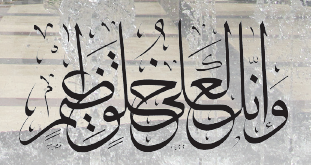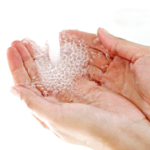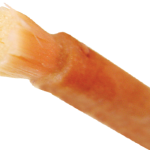Personal development and leadership

Perfect balance in satisfying body and soul needs

Muhammad called for maintaining the right balance between materialism and spiritualism. He taught his followers that the needs of body and soul must be satisfied but in the right balance and in lawful ways.
He encouraged people to take religion as a motivator for a better way of life which adds value to their bodies and souls.
Muhammad condemned extremism
Muhammad called for a balanced way of life, balanced views and rational thinking. It is narrated that three people came to his house to ask about his style of worship. Muhammad wasn’t at home and his wife talked to them. However, they found his level of worship less than what they expected.
They thought that a religious way of life requires focusing on spiritualities and ignoring some of the body needs or depriving it from natural desires.

According to their understanding, a religious person needs to stay single and must not get married. Also, he or she needs to fast every day and perform every night extra prayers besides the daily prayers.
When Muhammad knew what they said, he was upset but he stated that he usually performed extra prayers at night and rested like other people. In addition to the annual fasting in the month of Ramadan, he fasted for some time and he did not fast for other times. Finally, he got married and did not like people to stay single. He said:
“This is my Sunnah (the way of life that God likes). Whoever does not accept it, he / she is not one of us”.
Bukhaari, 1184 and Muslim, 849
Muhammad does not like difficulty
It is narrated that whenever Muhammad had to decide on a matter or an issue where more than one option or alternative was given, he always avoided hardship and chose the least complicated one provided that it fulfilled the required goals and did not involve unlawful acts. (Sahih Al-Bukhari, 8/160, 6786. Sahih Muslim, 7/80, 2327).

Purification and cleanliness

Cleanliness and personal hygiene are essential requirements in the Islamic faith.
“Truly, Allah loves those who turn unto Him in repentance and loves those who purify themselves (physically and spiritually)”.
Quran, 2:222
“And your clothing purify.”
Quran, 74:4
Performing ablution before praying is an essential requirement for prayers. It includes washing the hands, face, forearms up to the elbows, wiping the head and washing the feet.

Ghusul, complete body wash

Performing Ghusul (washing the whole body) on a regular basis is strongly recommended and is considered as part of Muhammad’s Sunnah (teachings and way of life). However, Ghusul is a must for purity on certain occasions (e.g. after marital contact and menstruation).
Muhammad emphasized cleanliness and purification in all aspects of life. He asked his companions to clean their homes and surroundings regularly. He taught them that removing harm or garbage from the road is a rewardable charity act.
Also, Muhammad urged his companions to maintain high personal hygiene and cleanliness. His sayings in this context indicate the following:
- Dress in clean and tidy clothes but do not be prodigal
- Use perfumes (Teeb) to smell good
- Trim your nails, remove pubic and armpit hair
- Wash hands before and after eating. Do not touch food after waking up until hands are washed.
Cleanliness or purification is half of the faith.
Sahih Muslim and Tirmithi
Miswak and dental care. Clean mouth and good breath during the whole day
Muhammad said: “If it did not trouble you, I would ask you to brush your teeth with miswak before each prayer.” (i.e. five times a day)
(Narrated by Bukhari & Muslim)
What is miswak?

Miswak is a common name for Salvadore persica (tooth brush tree, also known as the Arak tree). It is popularly used in Saudi Arabia. Miswak wicks clean between the teeth and do not break under pressure, rather they are flexible and strong.
The chemical analysis of Miswak shows that it contains many useful minerals and elements such as fluorides in large amounts, silica, vitamin C and small quantities of chlorides, tannins, saponins, flavonoids and sterols.
According to analytical research, Miswak helps fight plaques, recession and bleeding of gums. The Miswak stick releases fresh sap and silica (hard glossy material) which acts as an abrasive material to remove stains. Miswak can clean teeth gently and effectively, whitens the teeth without harming enamel or gum. The chloride content helps remove the plaque and tartar stains and vitamin C contributes to the healing and repair of the tissues. It is believed that Miswak extract relieves headache, common cold, nausea, tensions, and dizziness.
Seek knowledge

Muhammad brought a Message of light and guidance that encouraged scientific advancement and the development in civilization. It commenced from a divine revelation that had begun with the word “Read”. Within decades, it revolutionized knowledge and all types of sciences in Arabia and the whole world.
The words: read, think, learn, observe, explore, understand, ponder, contemplate, see and reflect are frequently mentioned in the Quran.
Indeed, in the creation of the heavens and the earth and in the alternation of the night and the daylight are signs (of God’s creative power) for those of understanding and discretion. The ones who remember Allah (the Lord of all beings) with reverence while standing and while sitting and while lying on their sides. And who reflect on the creation of the heavens and the earth, and say: Our Lord! You have not created all this in vain, exalted are You, then protect us from the punishment of the Fire.
Quran, 3:190-191
And in the earth, there are wondrous (incredible) signs (indicating the presence of God) and in yourselves (there are similar signs), can you not then see?
Quran, 51:20-21
Muhammad added value to peoples’ lives by encouraging them to learn and seek useful knowledge. He urged his companions to utilize knowledge for the wellbeing of humanity and not to cause mischief on the earth. He linked that to God’s pleasure when he said:
“That who follows a way for acquiring knowledge, God facilitates a way for him to Paradise”
(Sahih Muslim, 8/71, 2699)
For many centuries, Muslim scientists were the frontiers in pure and applied sciences. Arabic, the language of the Quran, became the language of sciences that were taught in full-fledged universities granting degrees in chemistry, mathematics, calculus, medicine, astronomy, geography, engineering, art and literature.
Some researchers acknowledge the truth that the western civilization relied primarily on the Islamic civilization. Without it, the western civilization would need at least 500 years to accomplish what it has already achieved.
| Scientist | Major Contributions |
|---|---|
| Geber Father of Chemistry 721-815 CE | Jaber Ibn Hayyan was a prominent polymath: a chemist, astronomer, astrologer, engineer, geologist, philosopher, physicist, and pharmacist and physician. He is considered by many scientists to be the father of chemistry. He was the first to discover many acids such as nitric, hydrochloric and sulfuric acids. He described many chemical processes such as evaporation, sublimation and distillation. The historian of chemistry Eric John Holmyard gives credit to Geber for developing alchemy into an experimental science. |
| Algoritmi Father of Algorithms 780-850 CE | Mohammad Ibn Musa Al-Khwarizmi was one of the greatest scientists of his time. He was a mathematician, an astronomer and a geographer. He made a great contribution to Mathematics when he developed Algebra (derived from the word Al-Jabr which means “connecting broken parts”) and “algorithms”which were named after him. Al-Khwarizmi also examined decimal positional number system and published a research which also reached Europe as a Latin translation. |
| Rhases (Rasis) Father of Physicians 865-929 CE | Abu Bakr Muhammad Ibn Zakariya AlRazi. He was considered by many scientists as the father of pediatrics. He was the first to differentiate smallpox from measles. He discovered numerous compounds and chemicals including alcohol and kerosene. Rhazes familiarized himself with Greek, Syrian, Arabic and Indian medicine and made medical experiments. Rhazes wrote many medical books and compiled pharmaceutical texts. Furthermore, he developed instruments that pharmacists have used all the way until the beginning of 20th century (inter alia mortar, spatula and ampoule). |
| Avicenna Father of Modern Medicine 980-1037 CE | Abu Ali Al-Hussein Ibn Sina is one of the most eminent Muslim scholars in medicine and one of the most famous Muslim scientists in the world. He was a polymath and the author of almost 200 books on science, religion and philosophy. Avicenna’s two most important works are: Shifa (The Book of Healing) which is a philosophical encyclopedia based on Aristotelian tradition and Al Qanun Fi-Tibb (The Canon of Medicine). The Canon is a 14-volume book, which classifies and describes diseases, and outlines their assumed causes. It was translated to different languages and was a standard medical text in Europe for seven centuries (until early 18th century). |
| Al Jazari 1136-1206 CE | Abul-Iz Bin Ismael Al-Jazari. He is best known for writing the “Book of Knowledge of Ingenious Mechanical Devices” where he described fifty mechanical devices along with instructions on how to construct them. Al-Jazari is also known as the inventor of the largest astronomical “castle clock”, which is considered to be the first programmable analog computer. According to Donald Routledge Hill, Al-Jazari described the most sophisticated candle clocks. He also invented the water clock and the crank shaft that transforms rotary motion into linear motion. |

Personal development through sport
Muhammad used to encourage his companions to maintain healthy bodies and learn different types of sports such as swimming, archery, horse riding and horse racing (horsemanship).

At the time of Muhammad people were enjoying the excitement and good feeling of sports. Running competitions were a common form of having fun. It is narrated that Muhammad was often seen racing with his wife Aisha. She won the race once and he won the race on another occasion. Muhammad used to say:
“O Allah, I seek refuge with You from worry, grief, incapacity, laziness, cowardice and miserliness”.
(Abu-Dawoud, 2/334, 2578. Ibn-Majeh, 3/149, 1979)
Muhammad allocated an area to be a racing field in the western side of the Nabawi Mosque in Madinah. Horse racing used to be conducted in the same field as well. A mosque was built next to the racing field and it was called the Sabaq Mosque (i.e. the mosque of the racing field).
